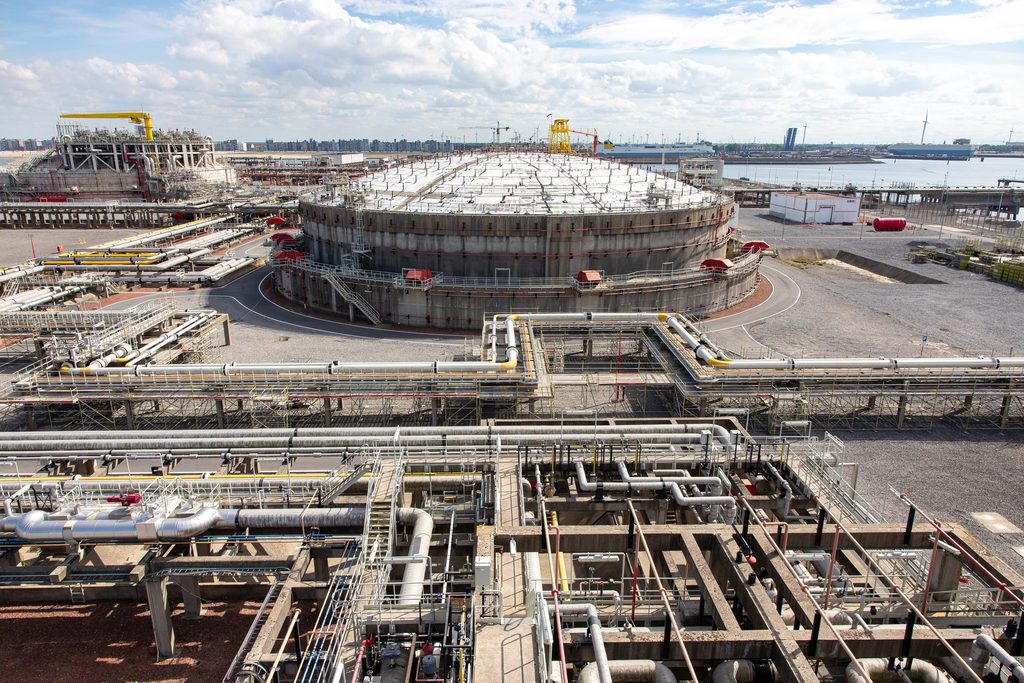Gas prices in Europe remain historically high despite low demand and storage units being close to capacity. This has fuelled fears that prices could soar again in the run-up to winter.
Concerns over Europe's energy security were underscored last Wednesday when gas prices skyrocketed by 40% after potential strikes at liquefied natural gas (LNG) facilities in Australia induced widespread panic in global energy markets.
On Monday, European gas prices were a shade under €37 per megawatt hour (MWh) on the Dutch Title Transfer Facility (TTF), Europe's most commonly used price benchmark. This is significantly lower than prices' €340 per MWh peak in August 2022, but still more than two times higher compared to the same period in 2019.
Experts are especially fearful that an abnormally harsh winter could cause prices to double or even triple by the end of the year, even though Europe's gas storage facilities are currently at 90% capacity.
"With low demand and full stocks, the situation is healthy as we approach winter," Florence Carlot, a Brussels-based energy market analyst at consultancy Arthur D. Little, told l'Echo. "But we are not immune from a cold winter that would put the supply chain under pressure again."
"A combination of factors disrupting supply – such as a strike in Australia or a further cut of Russian energy exports – coupled with low temperatures could lead to strong reactions on the markets," she added.
All depends on the winter
In addition to high prices and potential supply shortages, analysts stress that price volatility can be expected to become an increasingly entrenched feature of the European energy market.
Experts further note that such instability is a direct consequence of the EU's decision to diversify its energy supply away from Russia following the latter's full-scale invasion of Ukraine in February last year.
"The potential for strike action at LNG export plants in Australia once again highlights the fact that we are now clearly in a globalised gas market," Tom Marzec-Manser of energy consultancy ICIS told The Financial Times (FT). "Europe has understandably backfilled Russian pipeline supply with versatile LNG. But that versatility leads to increased price volatility."
Related News
- 'The crisis is not over': European gas prices skyrocket 35% in one day
- Belgium in Brief: When saving gas becomes a problem
Marzec-Manser elaborated that, even though Europe buys little LNG directly from Australia, the possibility of strikes at the country's LNG plants caused Asian importers to seek alternative supplies from Qatar and the US: countries from which Europe buys significant quantities of the supercooled fluid. This caused global energy prices to soar.
Other analysts emphasise that, ultimately, the future of Europe's energy security depends on how harsh this coming winter is. "Even if gas storages are full, that doesn't mean everything is fine," Callum Macpherson of Investec, a financial services company, told the FT. "It comes down to the winter we have, which is unknown at the moment."

